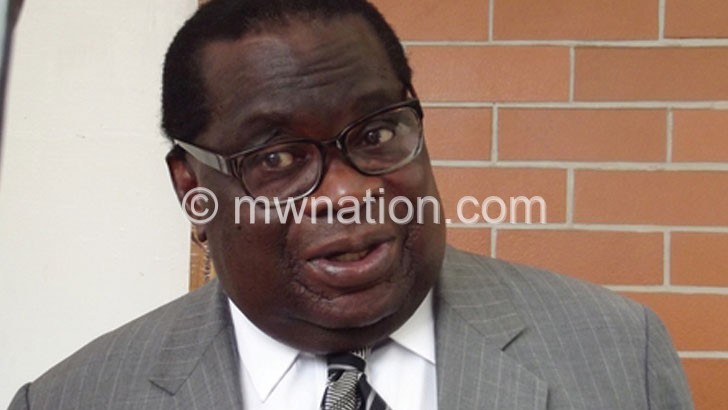Centre cautions on tax measures
Faith-based socio-economic organisation, Centre for Social Concern (CfSC), has decried what it says little or no effort to reduce economic inequalities in the proposed 2016/17 National Budget.
CfSC has since asked government to act immediately on progressive and effective tax measures to address the widening inequality gap.

In his 2016/17 National Budget Statement tabled in Parliament on May 27 this year, Minister of Finance, Economic Planning and Development Goodall Gondwe announced a number of tax policy and administrative measures to support mobilisation of domestic revenue.
But in a statement issued yesterday, the Lilongwe-based organisation argues that the tax-free income bracket of pay as you earn (Paye) has not been raised for the past three years despite the high inflationary pressures and local currency depreciation.
Reads the statement: “Increases to the free income tax band is a tax measure that would reduce income tax to the low and middle income individuals, improve incentives to enter employment and increase real household disposable incomes which would feed through to higher consumption or savings in the household sector.”
The centre has also cautioned against reliance on value added tax (VAT), saying the move may tax the poor into poverty.
Says CfSC: “Heavy reliance on VAT must be curbed as it allows for the balancing of State budgets on the back of the very poorest taxpayers. If VAT must be introduced on most of the everyday essentials in a bid to broaden the tax base, it is, therefore, important to have a graduated consumption-based tax where everyday essentials would attract lower rates than luxurious goods and services.”
But Gondwe, in an interview yesterday, said under VAT, charged at 16.5 percent, the poor and rich pay the same tax just as it is the case in every economy.
He said the fix he finds himself in is that few people pay taxes at a time donors stopped funding the budget over concerns of poor public finance management.
Said Gondwe: “If we had some people who are employed not paying some of the taxes, then we would not have the revenue. As such, everybody who is earning an income is required to pay taxes.”
In an interview last week, Economics Association of Malawi (Ecama) president Henry Kachaje while commending government for making the bold step to bank on domestic revenue as a major financier of the budget, noted that realising the same could be an issue.
He said: “We are coming of age as a country. There was a time when we banked heavily on donor aid especially on the recurrent budget which was a little higher than what is the current situation now.
Instead government has this financial year put in measures to see if we can raise more resources locally which is good.”
On Tuesday, members of Parliament (MPs) asked the Ministry of Finance, Development to explain why the proposed budget is focusing more on consumption than development.Economic Planning and
In response, Secretary to the Treasury Ronald Mangani defended the budget framework, saying all measures were considered in allocations to different votes. In this regard, he said, the budget cannot be termed as consumptive in nature.
The proposed budget is estimated at K1.2 trillion with total grants and revenue pegged at K965.2 billion or 22.2 percent of nominal gross domestic product (GDP).
Of this, K774.8 billion or 80.3 percent will be generated locally while the balance of 19.7 percent will come from development partners.
Public tax collector Malawi Revenue Authority (MRA) is expected to collect K708.8 billion and non-tax revenue will contribute K66 billion.





